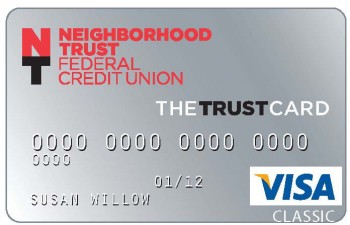Grantee Spotlight: A Credit Card You Can Trust
This blog series highlights the US Household Finance Initiative's Innovation Fund grantees. The fund supports the development of scalable, market-tested products that help households make better financial decisions, escape cycles of debt, build assets and achieve financial resiliency.
In an April 18th op-ed, the Washington Post takes issue with a recent Consumer Finance Protection Bureau (CFPB) announcement that the agency would support a reversal of existing bans on credit card fees. The high-fee, low-limit cards in question tend to target low-income borrowers, and consumer advocates fear that deregulating these cards could hurt consumers in the long run. WaPo’s op-ed ends with a call for rigorous research on the true impact of these “fee harvester” cards:
“The CFPB and the public could benefit from definitive studies on the financial and social impact of these cards. In addition to its rule-making authority, the CFPB has broad information-gathering powers. This is an opportunity to use them.”
IPA’s U.S. Household Finance Initiative (USHFI) welcomes the CFPB’s role as a catalyst for rigorous, randomized evaluations in the consumer finance space. Indeed, USHFI is already spearheading innovations and research on ‘healthier’ credit card products for low-income consumers with researchers Dean Karlan and Jonathan Zinman as part of our Financial Products Innovation Fund.
 As part of our Financial Products Innovation Fund, IPA has developed its first credit card product in partnership with Neighborhood Trust Federal Credit Union. A pilot test of “The Trust Card” was launched in New York City on April 1st, in order to learn more about the performance of this card and the way consumers use it.
As part of our Financial Products Innovation Fund, IPA has developed its first credit card product in partnership with Neighborhood Trust Federal Credit Union. A pilot test of “The Trust Card” was launched in New York City on April 1st, in order to learn more about the performance of this card and the way consumers use it.
The Trust Card is groundbreaking in several ways. First, the card’s main purpose is to allow clients to consolidate up to $10,000 in outstanding credit card debt by transferring balances to the Trust Card. Clients then pay down their debt faster through a low interest rate (15% for transferred balances and 16.5% for new purchases) and a fixed monthly minimum payment which does not decline as the balance is reduced.
A key feature of the card is its declining credit limit, which ensures that customers who get out of debt stay out of debt. As the borrower pays down their outstanding balance, their credit limit is reduced in proportion to their progress. For example, if a member initially consolidates $10,000 on the card, and it is determined that their credit limit availability rate will be 30%, then for every dollar of principal repaid the member will have 30 cents of credit available. Should the member repay the entire balance they will have $3,000 of credit available.
Finally, the Trust Card incorporates a hard commitment to restrict future borrowing. As part of the sign-up process, the client must also commit to not open other revolving credit accounts. The credit union will monitor this carefully, and should the client break their pledge, the credit union will no longer make additional credit available under the Trust Card.
The Trust Card pilot is just one way that USHFI is spearheading innovation and applied research on financial products for subprime consumers in the United States. USHFI welcomes collaborations with agencies like the CFPB so that future regulatory policy is data-driven and truly benefits the Americans it seeks to protect.












